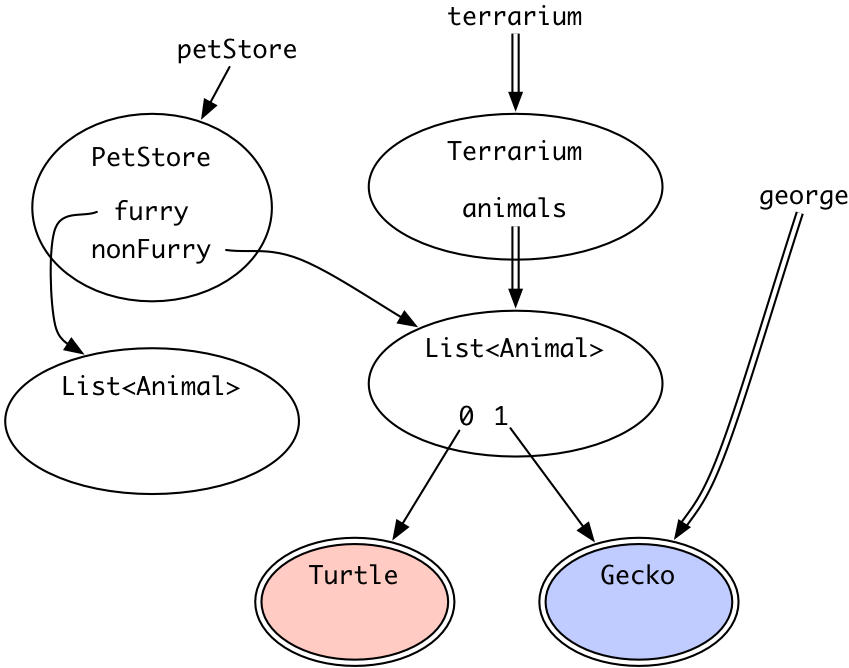Immutable Strings: A Trick Part in Ensuring Information Consistency and Reliability
In the realm of data monitoring, the relevance of immutable strings can not be overemphasized. These unchanging sequences of personalities play a crucial duty in maintaining the integrity and accuracy of details within systems. By maintaining a state of immutability, information consistency is made certain, fostering a structure of reliability whereupon important processes count. The idea of unalterable strings transcends simple formality; it is a cornerstone in the facility internet of information administration. As we discover the benefits, implementation approaches, and functional applications of unalterable strings, a more clear image arises of their essential nature in guarding the digital landscape.
The Idea of Immutable Strings
Immutable strings, a fundamental idea in programs, refer to strings that can not be changed when they are created. Fundamentally, when a string value is appointed, any procedure that shows up to customize the string really develops a brand-new string. This immutability makes sure data consistency and integrity in applications, as it prevents unexpected modifications to the original information.
Benefits in Data Consistency

Data uniformity is crucial in various facets of software application advancement, including database administration, multi-threaded atmospheres, and distributed systems (Why are strings immutable in Java?). Unalterable strings add considerably to attaining this consistency by protecting against data corruption because of concurrent accessibility. In scenarios where several processes or threads engage with the very same data at the same time, immutable strings act as a protect against race problems and synchronization concerns
In addition, the immutability of strings streamlines debugging and testing processes. With unalterable strings, programmers can rely on that once a string is established, it will certainly continue to be unmodified, making it simpler to map the source of errors and guaranteeing that test situations produce consistent outcomes. This dependability in information handling ultimately leads to extra robust and steady applications.

Carrying Out Immutable Strings
Making sure the immutability of strings calls for a thoughtful technique to their implementation in software development. One essential method is to develop string courses in a method that prevents adjustments once a string object is developed. By making strings immutable, designers can enhance data consistency and dependability in their applications.
To carry out unalterable strings successfully, programmers need to prefer developing brand-new string items instead of modifying existing ones. This method makes certain that when a string is appointed a value, it can not be changed. In addition, any type of procedure that shows up to customize the string must develop a new string with the desired modifications as opposed to modifying the initial.
In addition, utilizing unalterable strings can simplify concurrency management in multi-threaded environments. Since unalterable strings can not be transformed after development, they can be securely shared amongst several strings without the threat of information corruption.
Role in Integrity Guarantee
In software application advancement, the application of unalterable strings plays a vital function in making certain the integrity of data operations. Unalterable strings, once produced, can not be modified, ensuring that the information they represent continues to be regular throughout the application's implementation. This immutability residential property provides a level of assurance that the data being processed will certainly not be accidentally changed, resulting in unanticipated results or errors in the system.
By integrating immutable strings into software program design, programmers can boost the reliability of their applications by minimizing the threats associated with mutable information - Why are strings immutable in Java?. Immutable strings assist in preventing data corruption or unplanned modifications, which can be especially important when managing delicate info or when information stability is vital
Additionally, the use of immutable strings simplifies simultaneous handling, as several threads can safely gain access to and share string information without the danger of one pop over to this site string altering the content while another reads it. This aspect adds dramatically to the total reliability of the software application system, making certain constant and foreseeable habits in information taking care of operations.
Applications and System Assimilation
The seamless combination of unalterable strings into various applications and systems is critical for making certain robust data consistency and dependability across varied technological settings - Why are strings immutable in Java?. Unalterable strings play a vital duty in enhancing the honesty of data exchanges and interactions Your Domain Name within complicated software ecological communities. By including immutable strings into applications, programmers can minimize the risks linked with information tampering, unapproved alterations, and unintentional changes, consequently strengthening the general safety and security stance of the system
Immutable strings can improve interoperability between disparate systems by giving a standardized layout for data representation, making it possible for a lot more reliable information processing and exchange protocols across interconnected platforms. By adopting immutable strings in applications and system integration procedures, organizations can strengthen their information infrastructure and support the integrity and consistency of their information properties.
Final Thought
In verdict, unalterable strings play an important role in keeping data consistency and reliability in different applications and system assimilations. By making sure that strings can not be transformed as soon as developed, the stability of information is preserved, minimizing the danger of errors and incongruities. Carrying out unalterable strings can significantly boost the dependability of systems, ultimately leading to more accurate and reputable information processing.
